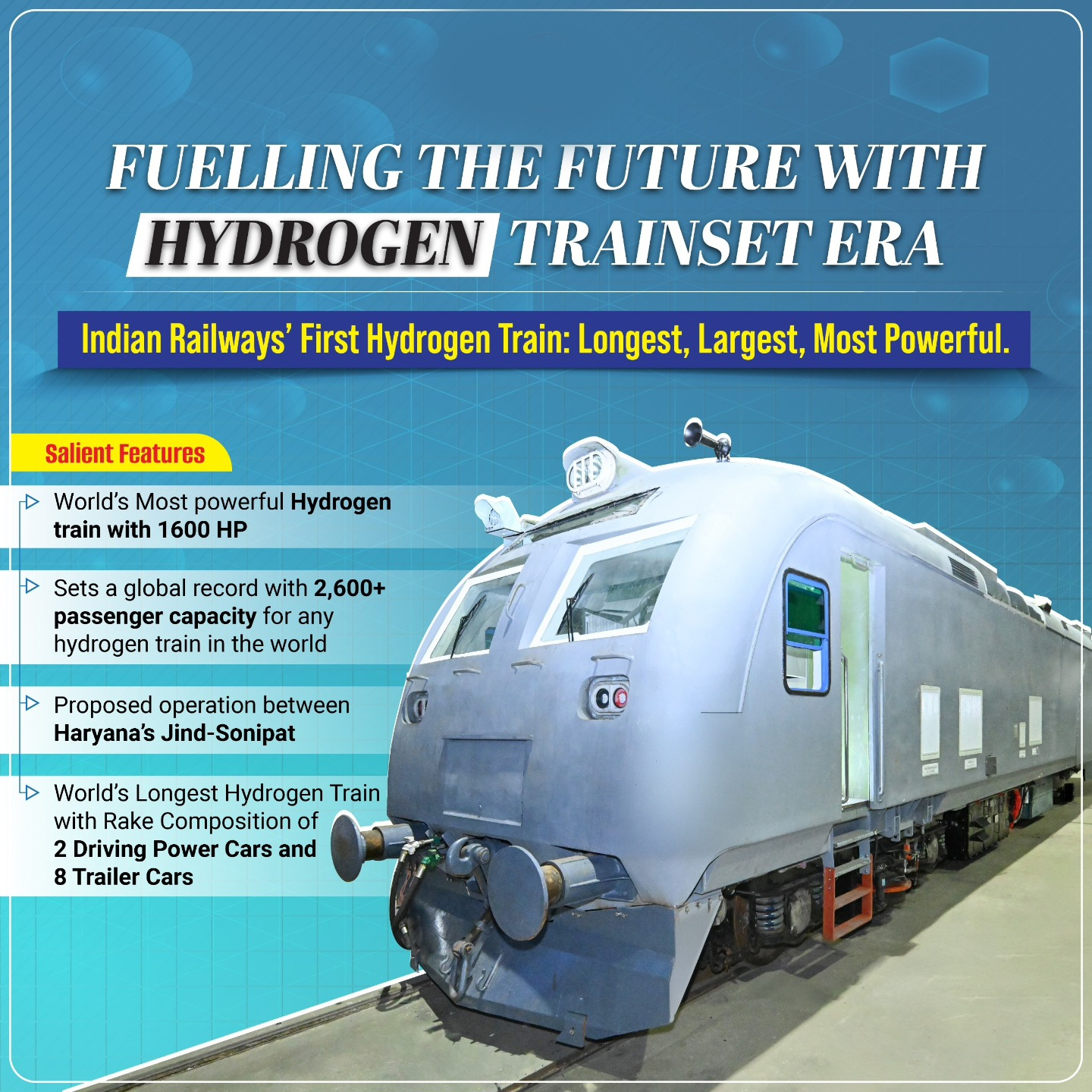Context:
Indian Railways successfully tested its first hydrogen-powered coach at the Integral Coach Factory (ICF) in Chennai, marking a significant milestone in the national transporter's quest to build India's first hydrogen-powered train. This project is a crucial step towards reducing greenhouse gas emissions and increasing the share of renewable energy in India's energy mix.
About the Hydrogen-Powered Train Project:
The project, undertaken by Northern Railway, involves converting two conventional diesel power cars into hydrogen fuel cell-powered traction systems. The total cost of the project is approximately ₹136 crore.
The primary design, validation, and testing are being undertaken by Indian Railways' Research Design & Standards Organisation (RDSO).
Key Components
· Hydrogen Storage and Fuelling Facility: A 3,000 kg hydrogen storage and fuelling facility is being set up at Jind in Haryana to provide the required hydrogen for the operation of the hydrogen-powered train.
· Hydrogen-Powered Train: The train will have a capacity to carry over 2,600 passengers and will be operated between Jind and Sonepat stations of Northern Railway in Haryana, covering a distance of 356 km.
How it Works
· Hydrogen Fuel Cell Technology: The project involves retro-fitting two diesel-powered cars into hydrogen fuel cell-powered cars, each carrying 220 kg of hydrogen stored in specially designed cylinders at 350 bar pressure.
· Safety Features: The hydrogen train will include safety features such as pressure relief valves, leak detection, flame detection sensors, temperature detection systems, and scientifically designed ventilation.
Safety Measures:
· Computational Fluid Dynamics (CFD) Studies: Railways have conducted CFD studies to minimize the risk of hydrogen leaks and other failure modes.
· Third-Party Safety Auditor: An independent third-party safety auditor, 'Technischer Überwachungsverein Süd' (TUV-SUD) of Germany, has been roped in to ensure safety standards.
Significance:
- Environmental Sustainability: Aligns with India’s Net Zero target by 2070 and National Green Hydrogen Mission.
- Technological Innovation: Boosts indigenous capabilities in clean energy rail tech.
- Energy Security: Reduces dependency on imported diesel.
- Global Leadership: Positions India among pioneers in hydrogen rail technology (alongside Germany, France, and Japan).
Challenges Ahead:
- High cost of green hydrogen production
- Infrastructure development for storage and refueling
- Long-term maintenance and safety management
- Policy support and private sector participation
Conclusion
Indian Railways' hydrogen-powered train project is a significant step towards sustainability and reducing emissions. With its successful testing, India joins a select group of countries exploring hydrogen-powered trains. The project is expected to pave the way for the commercial operation of hydrogen-powered trains in India, marking a new era in the country's rail transportation [1].







